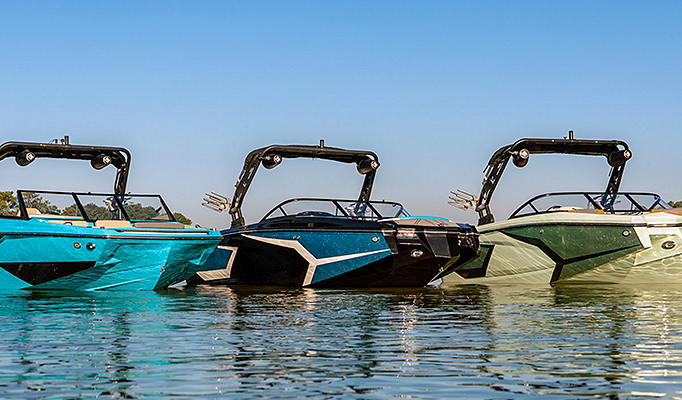Picture this: You’re driving down the highway, coming back from the lake after some ominous clouds chased everyone off the water. Suddenly, a gust of wind starts your boat trailer swaying violently left and right.
Why is this happening, and what should you do?
Here’s why your boat trailer is swaying
When a boat trailer sways, most often it’s the result of having too little weight from the trailer pressing down on the ball of a tow vehicle’s hitch. This downward force is called tongue weight and it’s important to have the correct amount. In your case—in your haste to get off the lake—you might have forgotten to dump all the ballast, which made the boat stern heavy and lowered the tongue weight.
To make matters worse, the sloshing of the water exaggerated the sway. Like forgetting to put in your drain plug before launching, failing to dump all the ballast before trailering is a mistake you only make once.
How much tongue weight is needed?
Although many tow vehicle manufacturers and online sources recommend a tongue weight of 10-15%, this range is more appropriate for travel trailers that have a higher wind profile and different weight distribution than boat trailers.
Boat trailers typically only need a tongue weight between 5-10% for safe operation, according to Boatmate Trailers, the builder of Heyday trailers.
Know your total weights
Most often when a boat needs help with a boat trailer swaying it’s because of improper setup. The first step in learning how to correct boat trailer issues is knowing the actual weight of your loaded boat on a trailer and knowing the tongue weight. The easiest way to determine this is to head to a truck stop that has a CAT-certified scale (usually $12.50 for the first weighing, $3 for a reweigh) or head to a landfill that weighs trucks coming in and out to determine the trash weight.
First, pull onto the scale with the boat attached but only have the wheels of the tow vehicle on the scale. Then disconnect the trailer and weigh just the vehicle. The difference between the two numbers is the tongue weight. Although it’s better to weigh your boat and trailer, you can estimate your boat’s weight from the manufacturer’s spec sheet but don’t forget to add in the weight of the trailer, tower, gear and fuel (6 lbs./gallon).
What to do if your trailer starts to sway
If you ever find yourself in this predicament, stay calm, take your foot off the accelerator and steer straight.
Don’t hit the brakes or try to steer out of it; this will only make it worse. As the towing rig slows, the sway should diminish and eventually stop. High speed is one of the contributing factors so after regaining your composure, slowly proceed home. If you feel another sway episode coming on, turn on your flashers and slow down even more and take corrective measures asap.
---
Boat trailer safety is an important part of the boating experience so make sure your trailer is set up properly before taking to the road.



